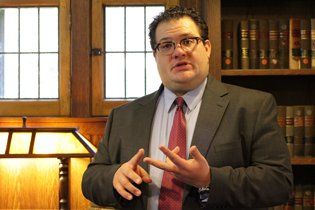Attorney
Daniel J. Williams


Background
Dan was born and raised in Buffalo, NY. At age 9, his family moved to Raleigh, NC. He attended North Carolina State University for his undergraduate degrees, graduating summa cum laude with a bachelor’s in Philosophy with a Concentration in Philosophy of Law, and a Bachelor’s of English in 2005.
Dan immediately went to law school following his undergraduate studies, moving to Detroit to study at Wayne State University. During his time in law school, Dan participated in the Moot Court Appellate Advocacy Program, which focuses on appellate court procedures and processes, where he won numerous awards.
Upon graduation from law school, Dan passed the Michigan Bar Exam and was licensed in 2008. Dan began practicing law at the Wayne County Prosecutor’s Office, where he had also interned for two years during law school. Initially working in the auto theft unit on financial crimes cases, Dan was ultimately assigned to the Elder Abuse Unit, prosecuting major felony cases with elderly victims and witnesses.
In 2015, Dan entered private practice. He began as an Associate Attorney at Fausone Bohn, LLP, as a criminal defense attorney. He additionally served as Assistant City Attorney for both the City of Westland and the City of Wayne, prosecuting misdemeanor traffic offenses. Eventually, his work in private practice moved to include family law, probate litigation, and estate planning.
In 2017, he left Fausone Bohn LLP, to start DFWN PLC, alongside Aimee. Dan has been an anchor amidst the expansion of the firm, continuing to practice family law, probate law, and criminal defense, having also gained experience in personal injury cases and firearm law.
Outside of work, Dan enjoys football, gardening, and spending time with close family and friends. He is an active member of the Grosse Pointe community, having previously served as an elected official on the City Council from 2017 to 2021.
